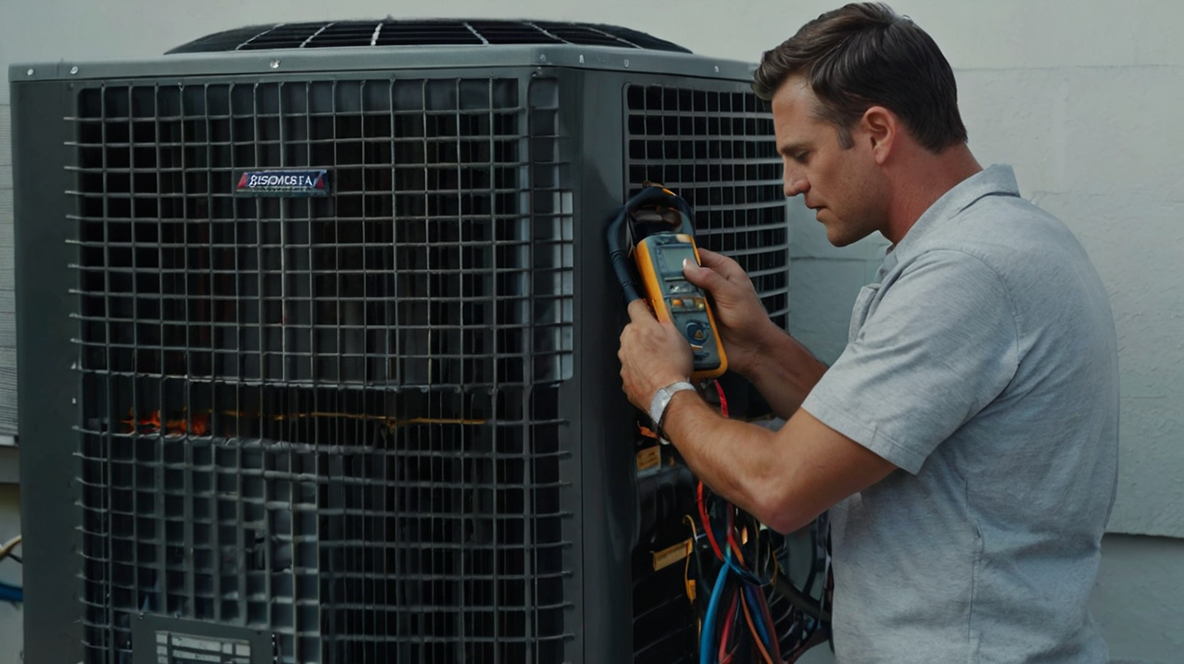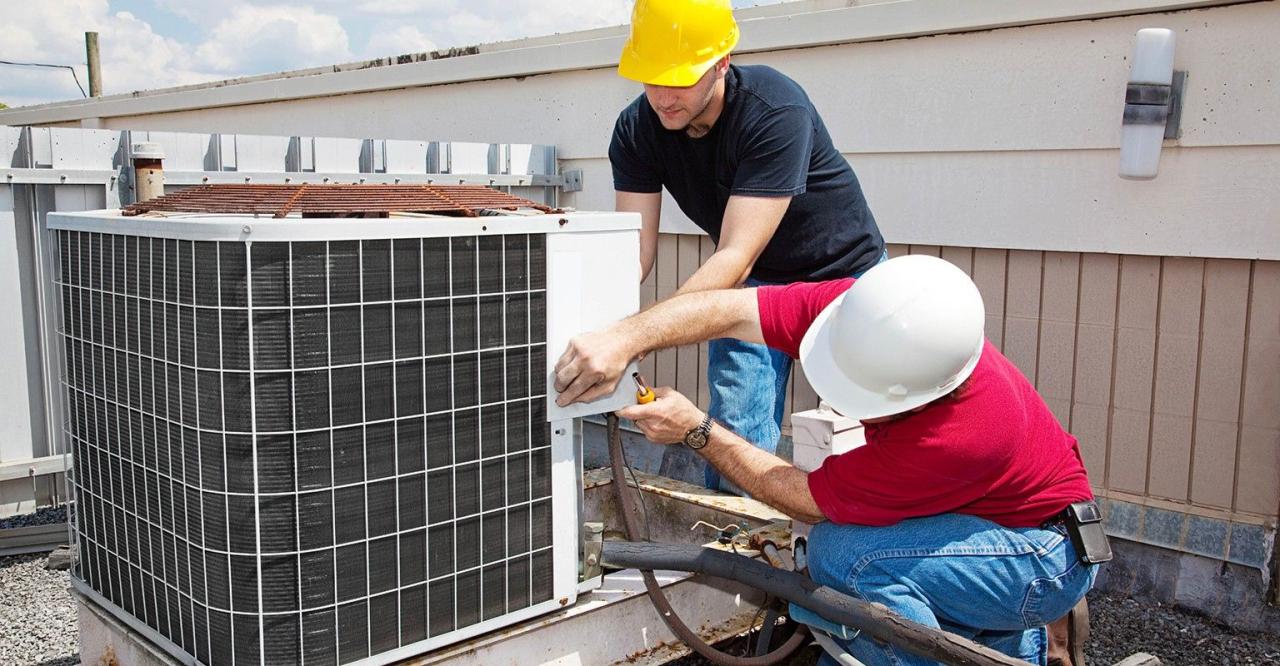HVAC Service Near Me for Older Homes: Ensuring Comfort and Efficiency

Exploring the world of HVAC service near me for older homes, this article delves into the importance of maintaining these systems in older properties. From common issues to upgrading considerations, discover how to keep your older home comfortable and energy-efficient.
Importance of HVAC service for older homes
Ensuring proper HVAC service for older homes is essential to maintain a comfortable living environment and preserve the integrity of the property. Older homes often have unique challenges when it comes to heating, ventilation, and air conditioning systems.
Differences between HVAC systems in older homes and newer ones
1. Age and wear: HVAC systems in older homes are more likely to be outdated and worn out, leading to inefficiency and higher energy consumption.
2. Ductwork: Older homes may have outdated ductwork that is not properly sealed or insulated, causing air leaks and reduced efficiency.
3. Size and capacity: HVAC systems in older homes may not be properly sized or have the capacity to meet modern heating and cooling demands.
Benefits of regular HVAC maintenance for older homes
- Improved energy efficiency: Regular maintenance helps older HVAC systems operate more efficiently, reducing energy bills.
- Enhanced indoor air quality: Proper maintenance ensures that the air circulating in the home is clean and free of pollutants.
- Extended lifespan: Regular maintenance can prolong the life of older HVAC systems, delaying the need for costly replacements.
- Prevent costly repairs: By addressing minor issues early through maintenance, homeowners can avoid major breakdowns and expensive repairs.
Common HVAC issues in older homes
Older homes often face specific challenges when it comes to HVAC systems. The aging infrastructure and outdated technology can lead to a variety of issues that impact the comfort and efficiency of the home.
Identifying typical HVAC problems faced by older homes
In older homes, some common HVAC issues include inadequate insulation, outdated ductwork, inefficient equipment, and poor air quality. These problems can result in uneven heating and cooling, increased energy bills, and a higher risk of system breakdowns.
Elaborating on how aging affects HVAC systems in older homes
As homes age, their HVAC systems can deteriorate due to wear and tear, leading to decreased performance and efficiency. Components such as the furnace, air conditioner, and heat pump may require more frequent repairs or maintenance to keep them running smoothly.
Additionally, older homes may not have been designed to accommodate modern HVAC technology, making it challenging to upgrade or replace outdated systems.
Discussing the impact of outdated HVAC technology on energy efficiency
Outdated HVAC technology in older homes can significantly impact energy efficiency. Older systems are often less energy-efficient than newer models, leading to higher energy consumption and increased utility costs. By upgrading to more modern and efficient HVAC systems, homeowners can improve comfort levels, reduce energy bills, and decrease their environmental footprint.
Factors to consider when choosing HVAC service for older homes

When selecting HVAC service providers for older homes, homeowners should pay attention to specific factors to ensure the system is properly maintained and any potential issues are addressed promptly.
Experience versus Cost-Effectiveness
In the context of older homes, experience should be prioritized over cost-effectiveness when choosing HVAC services. Experienced technicians are familiar with the unique challenges posed by older HVAC systems and can provide tailored solutions to ensure optimal performance and longevity.
Checklist of Considerations
- Expertise in dealing with older HVAC systems
- Knowledge of historical HVAC regulations and standards
- Ability to identify and address common issues in older homes
- Availability of emergency services for urgent repairs
- Positive reviews and recommendations from previous clients
- Transparent pricing and detailed cost estimates
Upgrading HVAC systems in older homes
When it comes to upgrading HVAC systems in older homes, there are several important steps to consider in order to ensure efficiency and effectiveness. Upgrading to more energy-efficient systems can bring numerous benefits, both in terms of cost savings and environmental impact.
Additionally, maximizing the efficiency of these upgrades is crucial for long-term performance and comfort in older homes.
Steps involved in upgrading HVAC systems in older homes:
- Assessment of current HVAC system: Evaluate the existing system to identify areas of improvement and determine the most suitable upgrades.
- Selection of energy-efficient equipment: Choose high-efficiency HVAC units that are appropriate for the size and layout of the older home.
- Professional installation: Hire experienced HVAC technicians to install the new equipment properly and ensure optimal performance.
- Regular maintenance: Schedule routine maintenance to keep the upgraded system running smoothly and efficiently over time.
Benefits of upgrading to more energy-efficient HVAC systems:
- Lower energy costs: Energy-efficient systems can help reduce utility bills, saving money in the long run.
- Improved comfort: Upgraded systems can provide better heating and cooling performance, enhancing overall comfort in the home.
- Environmental impact: Energy-efficient HVAC systems contribute to reducing carbon emissions and lowering the home's carbon footprint.
Tips on maximizing the efficiency of HVAC upgrades in older homes:
- Sealing ductwork: Properly sealing and insulating ductwork can prevent air leaks and improve overall system efficiency.
- Upgrading insulation: Enhancing insulation in the home can help maintain consistent indoor temperatures and reduce the workload on the HVAC system.
- Installing programmable thermostats: Programmable thermostats allow for better control over heating and cooling schedules, optimizing energy usage.
Final Summary

In conclusion, prioritizing HVAC service for older homes is essential for ensuring optimal performance and longevity of your system. By addressing common issues, considering key factors, and exploring upgrades, you can enhance the comfort and efficiency of your older home's HVAC system.
Essential FAQs
What are some common HVAC issues in older homes?
Common issues include inefficient cooling or heating, poor air quality, and outdated technology.
How do HVAC systems in older homes differ from newer ones?
Older systems may be less energy-efficient, have outdated components, and require more maintenance.
What factors should homeowners consider when choosing HVAC service for older homes?
Homeowners should look for experience, expertise in older systems, and a focus on energy efficiency.
What are the benefits of upgrading to more energy-efficient HVAC systems in older homes?
Upgrading can lead to improved comfort, lower energy bills, and reduced environmental impact.

